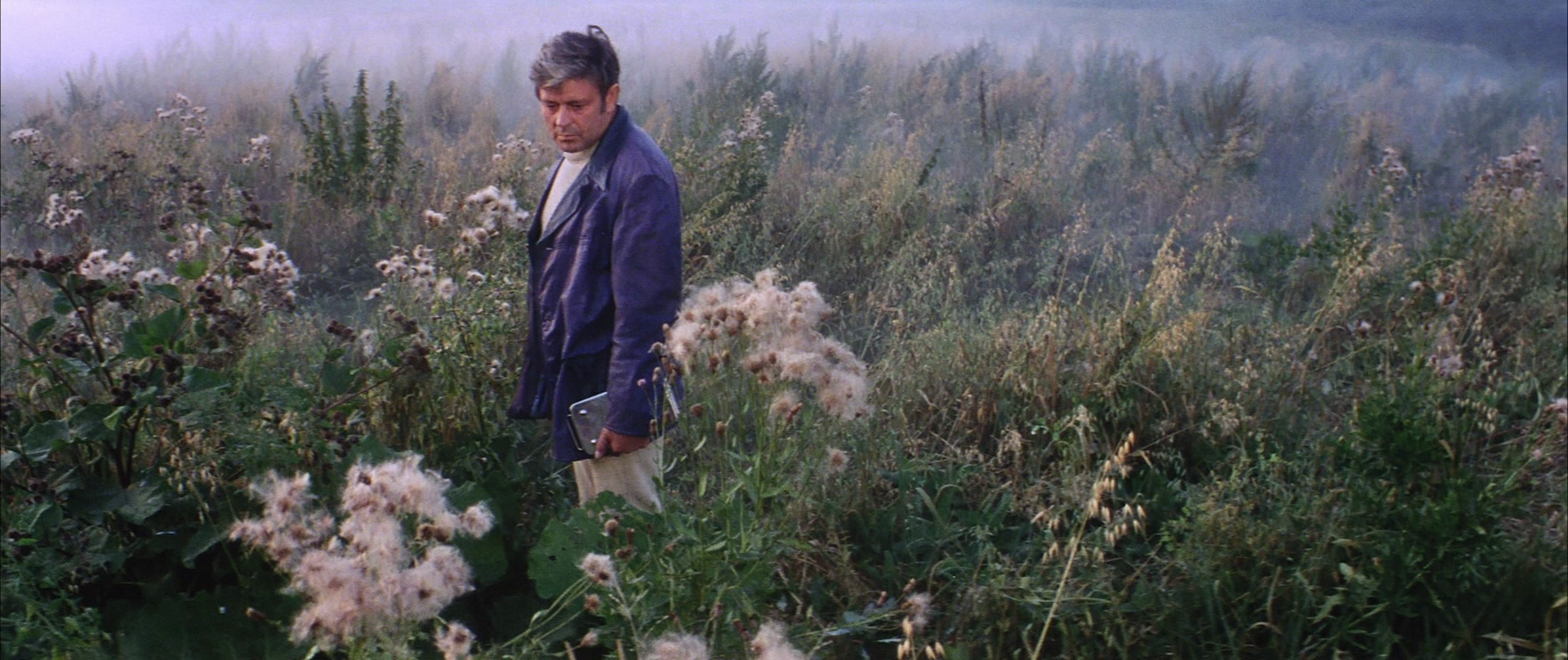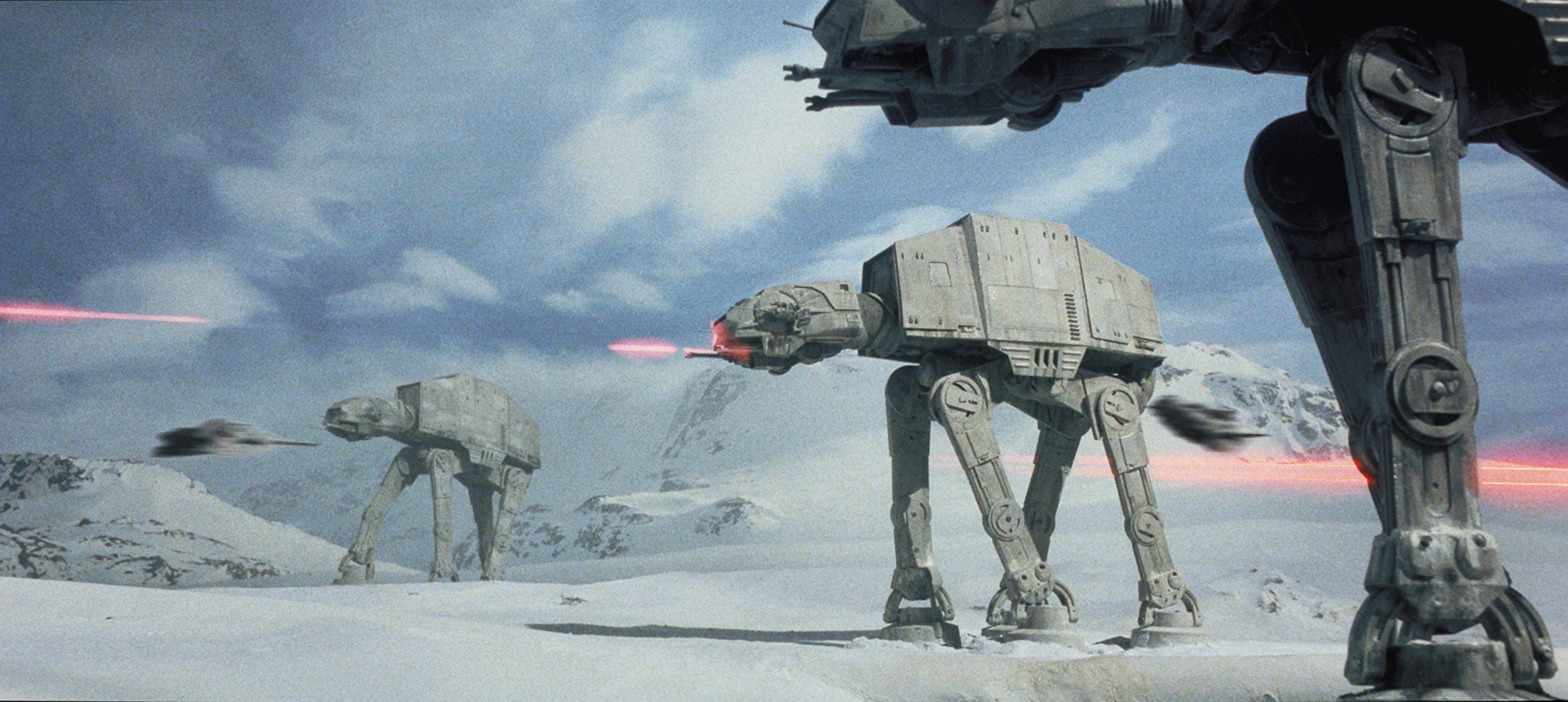I’ve never wanted to be an astronaut. Not that it was ever particularly on the table—I’ve always been a little too clumsy and a little too anxious for a one wrong move and you could puncture this tinfoil-thin barrier between you and the vacuum of space type of hang. Even so, I’ve generally felt comfortable limiting my travel to environments not actively incompatible with my basic biological functions.
But movies are a different matter. Ever since watching Return of The Jedi in my kindergarten best friend’s basement (my first viewing of a film in the Star Wars franchise, which likely explains something or another about me) I’ve been obsessed with storytelling of the star-bound variety—everything from space-operas to disaster films to celestially-based psychological explorations.
Dune is a story form-fit to this obsession, its marriage of high-concept interplanetary political intrigue with space-minded technological innovation and philosophical mythmaking playing to nearly every one of my interests simultaneously. While I’ll leave the proper reviewing to my fellow MMHer Dave Haffner (short version: 4.5 out of 5 gifts of my body’s moisture), my weekend viewing of the film was motivation to revisit some of the broader genre’s best.
And what better way to do so than, in quintessential MMH fashion, to compile a Space Movie Starting Five?
A few caveats up-front:
- This is not a list including aliens-visiting-earth movies (apologies to Arrival) or movies that take place on a space planet (apologies to Avatar), or movies about people who are really interested in space but don’t actually spend any time there on screen (apologies to Gattaca and October Sky and half of the movies made in the 90s). We need space travel to play a central role in the story, and need our protagonists to be involved in that traveling.
- In hopes of keeping things interesting, I’ll be limiting myself to one film from any series (our version of the NBA’s tacit cap on the number of Plumlee’s you’re allowed to roster during any one season)—as much as we’d all love to read a list that’s 4/5ths Star Wars movies.
With all that in mind, I humbly present:
THE STARTING FIVE
5. Sunshine (dir. Danny Boyle, 2007)
Come for the sunburns, stay for the space madness! Though its final act teeters on the edge of incomprehension, Danny Boyle’s one last hope for the survival of humanity journey to the heart of our solar system is as concerned with the unquantifiable power of celestial bodies as it is with the logistical minutia of oxygen production and preservation during semi-futuristic space travel. This balancing act injects a quasi-religious import into every mundane task undertaken by the film’s protagonist crew, while also tethering its most lofty philosophical excursions to a more relatable set of practicalities (credit to writer Alex Garland, who’s turned this sort of narrative juggling into his calling card).
Bolstered by phenomenal performances up and down the cast list (most especially Cillian Murphy as resident out-of-his-depth genius Capa), Sunshine deservedly breaks into the starting five above a number of higher-profile genre installments.
4. Solaris (dir. Andrei Tarkovsky, 1972)
While some may hand-wave it as overlong and self-serious, the slow unraveling of Solaris more than justifies its languid runtime—especially once the space psychosis hits its third-act crescendo. There’s a (retroactively) Lynchian quality to the film in its creation of unease through its dreamlike tonal shifts and hypnotic fixation on small details. Few movies have better captured the gradual imbalancing of grief and the madness that follows in its wake. And while I could have done without some of its more apathetically paced sections (including what appeared to be a real-time drive across the entirety of 1970s Russia), its best moments are hauntingly focused—most especially the gorgeous thirty-seconds-of-weightlessness sequence on the edge of the film’s third act.
Also, shouts to anyone who hears they’re being sent to a space-madness-inducing station and thinks to pack monogrammed PJs. King shit.
3. Alien (dir. Ridley Scott, 1979)
A film that answers the age-old question, “what if Jaws, but space?” Ridley Scott’s Sigourney Weaver-helmed sci-fi/horror epic captures the claustrophobia of space better than any other film on our list. Here, space is not an expanse, but instead a boundary trapping you with your worst nightmare.
Though the film’s success is ultimately a product of Weaver’s brilliant performance as Ellen Ripley, it is scaffolded by Scott’s restrained and nuanced approach to world-building, which avoids ham-fisted exposition throughout. And while the series’ action-heavy second installment (Aliens, 1986) achieves greater heights in its stakes, Alien’s masterful command of tension ultimately makes it the top choice from the franchise to break into our starting five.
2. Wall-E (dir. Andrew Stanton, 2008)
Unlike in many of the other entrants on our list, in Wall-E space is not something to explore, it’s something to come home from. This post-Terran epic brilliantly wire-walks between a family-friendly, physical-comedy-laden extraterrestrial romp and a scathing critique of our society’s misguided practice of “what, me worry?” environmentalism.
But the true genius at the heart of Pixar’s second-best film (R.I.P. to my previous ranking on this very site) is the humanity that defines its decidedly inhuman leads: Wall-E and Eva’s connection, and their willingness to defy everything from a near-omnipotent HAL 9000 knockoff to their own programming in order to preserve it is heart-wrenchingly relatable in spite of its epic scope.
And Andrew Stanton’s ability to tell that story with such limited dialogue is an absolute triumph.
1. Star Wars: Episode V – The Empire Strikes Back (dir. Irvin Kershner, 1980)
Would I love to be more interesting with my number one pick? Sure. Unfortunately, the decidedly uncontroversial apex of on-screen space operas is simply too perfect a film (sister-kissing aside) to claim anything lower than the top spot. It’s an unparalleled marriage of grandiose myth-making and grounded character work, and easily the funniest film in the now 11-film franchise (though not for lack of Alan Tudyk’s trying).
And yet, the absolute masterstroke remains Empire’s willingness to end with a lack of resolution, demanding that its audience sit with the devastation of Han’s carbonite capture and the weight of Luke’s parentage reveal (genocidal dad—not great!) until the sequel can unburden them.
If the commentary around Dune’s unraveling premonition of an ending is any indication, it’s a choice that would have infuriated the contemporary Very Online™ crowd. But the willingness to leave your audience unsure, confused, and just shy of satiated is exactly the kind of narrative bravery that we need more of in today’s films. It’s also what makes The Empire Strikes Back the greatest space movie of all time.
Honorable Mentions/Space Movie 6-13 Rotation Players:
- Space Balls (dir. Mel Brooks, 1987)
- Guardians of the Galaxy (dir. James Gunn, 2014)
- Dune, Pt. 1 (dir. Dennis Villeneuve, 2021)
- 2001: A Space Odyssey (dir. Stamleu Kubrick, 1968)
- Star Trek (dir. J.J. Abrams, 2009)
- Moon (dir. Duncan Jones, 2001)
- Apollo 13 (dir. Ron Howard, 1995)
- Starship Troopers (dir. Paul Veerhoeven, 1997)
Five Key Plumlee Rule Victims:
- Star Wars: Episode VI – Return of the Jedi (dir. George Lucas, 1983)
- Aliens (dir. James Cameron, 1986)
- Rogue One: A Star Wars Story (dir. Gareth Edwards, 2016)
- Star Wars: Episode IV – A New Hope (dir. George Lucas, 1977)
- Star Wars: The Last Jedi (dir. Rian Johnson, 2017)
For a long list of Nate’s favorite space movies, check out his Letterboxd list A Wildly Biased Ranking of Many Space Movies














